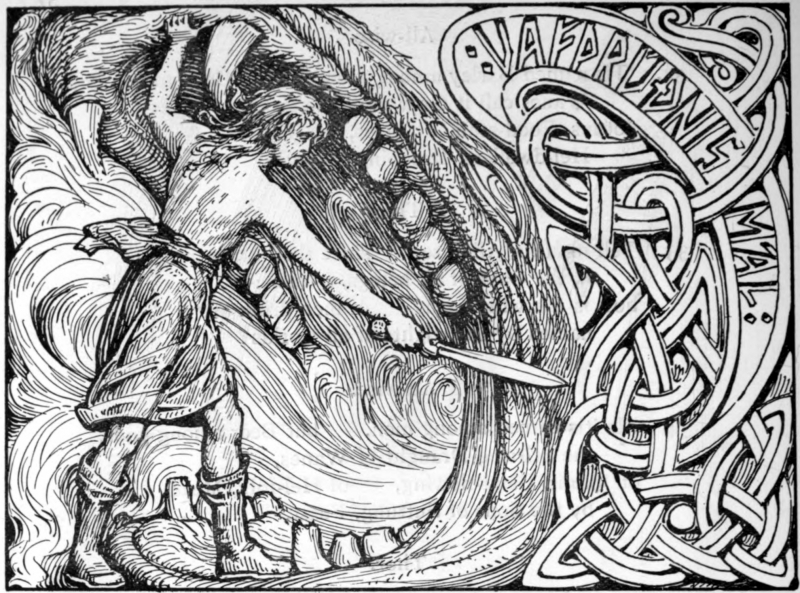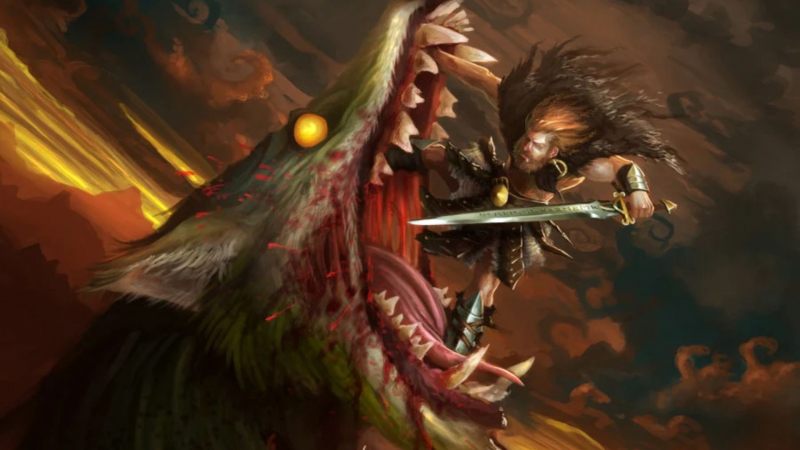Viðarr

Viðarr is a god among the gods in Norse mythology who is associated with retribution. According to legend, Viðarr is the son of Odin and the jötunn Gríðr. He is prophesied to kill the wolf Fenrir at Ragnarök to exact revenge for the murder of his father. Viðarr is mentioned in the Prose Edda, which was composed in the 13th century by Snorri Sturluson, and the Poetic Edda, which was assembled in the 13th century from earlier traditional sources. It is believed that Viðarr is pictured beside Fenrir on the Gosforth Cross. The figure is the subject of several ideas, including those involving possible ritual silence and a Proto-Indo-European origin.
His role in Ragnarok is the subject of almost the whole body of writing that is devoted to him in Old Norse literature. The gods fought against the giants, who represented the deities of mayhem and violence, during Ragnarök. Most people on both sides died in the conflict. The god Odin was ingested by the wolf Fenrir. To exact retribution for the death of his father, Vidar, the son of Odin and the giant Grr, immediately attacked the wolf. He was sporting a pair of shoes made specifically for this event. It was the most robust and durable pair of shoes, and it unquestionably possessed magical abilities. Vidar used it to kick the wolf's bottom jaw and tear it apart.
The beast's top jaw remained open as he cut Fenrir's mouth with his blade. He eventually puts an end to the creature's destructive rampage. Other locations also allude to Viðarr as the "quiet deity," albeit no explanation is given for this label. He is reputed to be the most violent god after Thor. His realm is seen to be covered in tall grass and brush. However, it is unclear how this tie between this place and this God is relevant.











